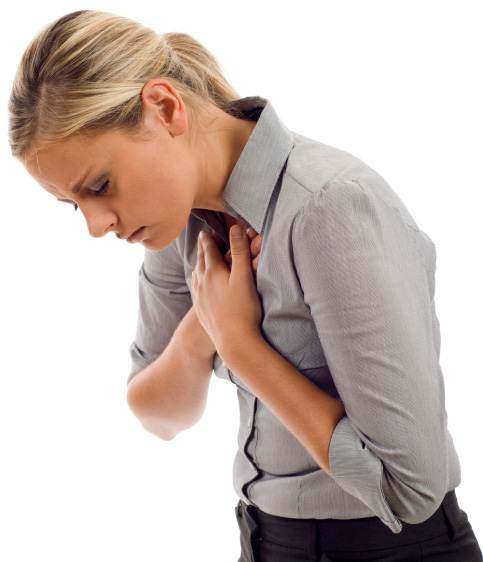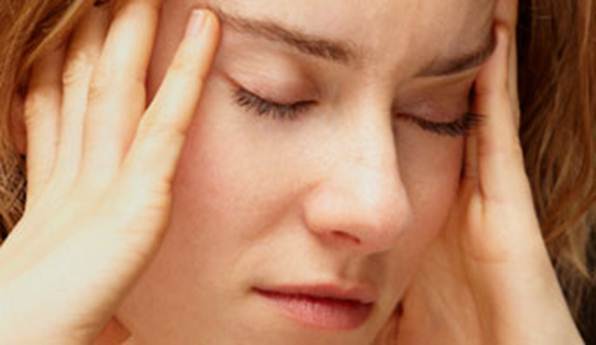Our body’s natural cycles mean we’re more
likely to experience certain symptoms at certain times of the day or night.
Heart attacks are most likely to happen
before lunch, while asthma-related wheezing is more common in the early hours
of the morning – all because of our circadian rhythms. These affect when we
wake and sleep and can also increase our risk of certain health problems. So
how might your health suffer, day and night?
6AM – Allergies
Allergies can be triggered in the morning
when you wake and stir up common allergens such as dust mites in bedclothes and
carpets, animal dander, and moulds in the bathroom.

The
best treatment for allergies is to identify the allergic substances (allergens)
that are causing problems through allergy testing and avoid these offending
agents
“If you get an allergic reaction the same
time every morning, take your medication as soon as you wake to get it under
control,” says Dr Ronald McCoy, spokesperson for the Royal Australian College
of General Practitioners.
“Find the cause of your allergy so you can
try and eliminate it from your home and an allergist may give you a series of
injections to help your immune system develop resistance.”
8AM – Heart attack
Heart attacks are more likely to occur in
the morning, says Professor Simon Stewart, head of the Preventative Cardiology
Unit at Baker IDI Heart & Diabetes Institute.
“The circadian rhythms see blood pressure
and heart rates rise. So people with underlying risk factors for heart attack
are particularly vulnerable,” he says.

“The
circadian rhythms see blood pressure and heart rates rise. So people with
underlying risk factors for heart attack are particularly vulnerable,”
“Imagine you have a car and you drive your
engine at full acceleration the whole time – it would quickly wear out. The
circadian rhythm allows our body to go into a dormant state at night and blood
pressure and heart rate go down.”
But when we wake our body is on heightened
alert. Add to this the fact that people who take medication for heart problems
last took their medication before they went to sleep – a fair time ago. “It’s a
perfect storm situation,” says Stewart. “But we all have to wake up, so you
need to get on top of any heart disease risk factors. Take your medication for
high blood pressure or high cholesterol, lose weight if you need to, exercise
regularly and you’ll reduce your risk.”
9AM – Migraine
Research at Cleveland Clinic Foundation in
the US found migraines are also affected by circadian rhythms. A group of
migraine sufferers were followed for 20 weeks and researchers found that most
migraines struck between 8am and 10am. Researchers believe this may be due to
blood vessels in our head expanding in the early morning as we wake, leading to
migraine. Migraines were least likely to occur between 8pm and 4am. About two
million Australians suffer from migraine.

Research
at Cleveland Clinic Foundation in the US found migraines are also affected by
circadian rhythms
“Take preventative medication to help
migraines, and remember that migraines are notorious for being triggered by
lots of things in the environment,” says McCoy. These triggers can include
caffeine withdrawal, chocolate, monosodium glutamate (MSG), dehydration, a lack
of sleep or oversleeping.
3PM – Panic attacks
If you are going to have a panic attack,
it’s most likely between 3pm and 7pm, according to a study at the University of
Michigan. Typical symptoms include a racing heartbeat, feeling short of breath
or dizziness. Up to 35 per cent of Australians have a panic attack during their
lifetime.
“People may be getting a little tired and
stressed at this time of day and that could help trigger a panic attack, too,”
says McCoy.

If
you are going to have a panic attack, it’s most likely between 3pm and 7pm,
according to a study at the University of Michigan
Researchers say circadian rhythms can also
play a role in panic attacks as this natural cycle sees our nervous system
become more active in the afternoon. This means our body’s defence mechanism is
on high alert and chemical changes quickly occur if we feel the slightest bit
under threat – known as the fight or flight response. If too much adrenalin is
released at this time, we may feel over-anxious and panicky.
Medications, cognitive behavior therapy,
stress management techniques, breathing and relaxation techniques, regular
exercise and enough sleep each night can help anxiety.